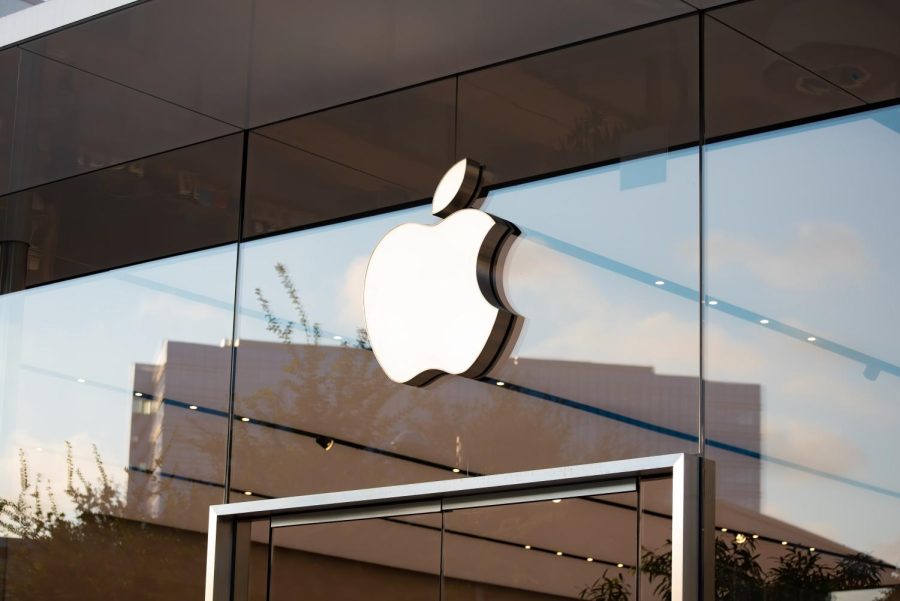Complaints to Apple
November 8, 2022
*The opinions expressed within the content are solely the author’s and do not reflect the opinions and beliefs of the website or its affiliates.*
The Apple has begun to rot, yet we are still biting into it.
Apple’s consistent monopoly over the tech industry has allowed the company to prioritize money over its innovation and product quality. The most recent example of this is the iPhone 14. The device trailer promotes some of the phone’s new safety features, including an SOS alarm via satellite connection and car crash detection. With only the addition of a few safety features and a camera update, Apple’s latest product feels underwhelming at best. While these updates are much needed and appreciated, they should not be used as a central point for advertising. Safety measures are necessities and not to be flaunted as a new innovation.
By establishing accident prevention at the forefront of its marketing campaign, Apple creates an unhealthy relationship with its customers. Buyers become reliant on the sense of safety that Apple products claim to provide. The possibility of avoiding car crashes, strandedness and kidnapping have become reasons for buying the latest iPhone instead of novelty and practicality. Where are the innovative features that Apple fans have come to expect? This recent release just felt like a sordid way to earn quick money. It is desperate, and it shows.
However, this is not the first time Apple has shown its priorities. Their prioritization of money over user quality has also been shown through the App Store. There has been a multitude of cases brought against Apple by various app developers. In August 2020, Epic Games, creator of the popular game “Fortnite,” filed and lost a lawsuit against Apple over several disparities in reaching consumers. Among these complaints came arguments over payment methods in the App Store. The App Store forces all app transactions to be made through Apple, meaning that Apple takes a cut of the revenue. This results in app developers raising the prices of their products in an attempt to compensate for their lost funds. Just to make some additional revenue, the multi-trillion dollar company knowingly compromises user quality: once again showcasing its monopoly over the industry.
Following this string of lawsuits against Apple, another legal case was brought against the tech giant by app developer Kosta Eleftheriou. Eleftheriou emphasized the amount of scamming and fraud that takes place via the App Store. For example, using the reviewing feature, developers can make their apps seem more positively reviewed than they are. It is easy to exploit the system by buying reviews that positively rate their apps while invalidating legitimate apps.
Apple also makes it seem as though the App Store is much safer than it is, notifying people that all apps are quality and safety checked by Apple. By providing this safety assurance, users are given the impression that they are not susceptible to any form of scamming or digital harm through the App Store. However, there is a shocking amount of apps present for the sole purpose of scamming and harming users. One victim of this was Phillipe Christodoulou, who lost $600,000 in bitcoin to a scam, rated highly on the App Store. Despite his anger at the app itself, he was even more frustrated with Apple. The company has made it seem as though there are no security risks in the App Store, leaving consumers like Christodoulou feeling betrayed. The primary issue is that Apple markets itself as a secure place to download software, often misleading users to believe that they are absolved from any risk.
This is not all to simply state that Apple is a bad company or that it produces bad products. The main reason they draw so much criticism is that they have such a high standard of excellence. However, that doesn’t excuse their most recent violations in products and policy. The lack of innovation in newer Apple products, such as the new iPhone 14, makes the company nothing more than social credit cards, used as means to showcase your wealth and technological prowess.
Despite knowing this, consumers continue to buy into the monopoly year after year, striving to put that extra number on the end of their phones’ names. Apple’s deceptive policies have led to an ignorant acceptance of Apple’s corruption, perpetuating its monopoly over the tech industry and our lives. They pressure us to constantly trade our privacy and online safety for commercial branding, and it’s time we put an end to it. Demanding more from the companies at the top is essential if we want to maintain a healthy relationship with the products we use daily; otherwise, the apple’s rot will consume us all.





